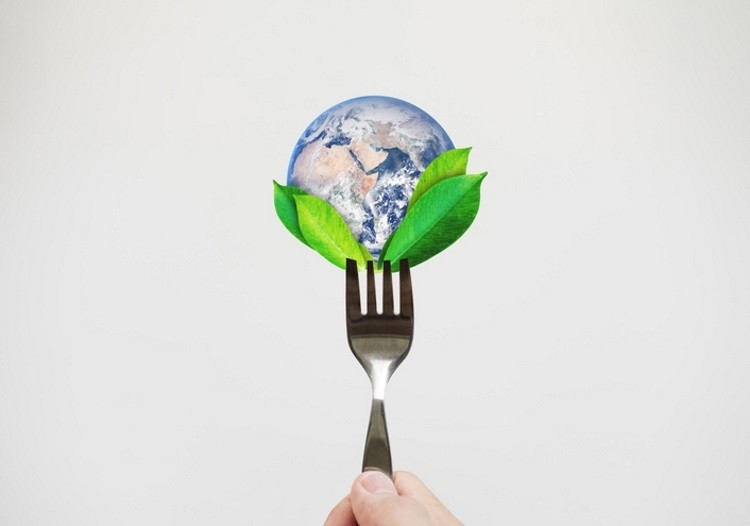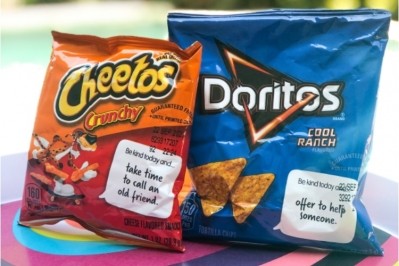PepsiCo on target to build a more sustainable food system

The Lay's maker is also inspiring positive change through programmes like Stacy’s Rise (empowering women) and Doritos Rainbow (celebrating the LGBTQ community), and is five years ahead of schedule to supply safe water to underserved communities around the world.
Since 2006, the company has helped 44 million people gain access to safe water through distribution, purification and conservation programmes, surpassing its goal to reach 25 million by 2025. It has now set a new goal of reaching 100 million people by 2030, specifically focusing on its near-term work on water distribution, sanitation and hygiene programmes to bolster public health in the wake of the coronavirus pandemic.
“Today’s global environmental and societal pressures are bringing into sharp focus the need for systemic change,” said Ramon Laguarta, PepsiCo’s CEO and chairman.
“These challenges not only require deeper commitment from the private sector, they also require demonstrated and sustained action.
“As a global food and beverage leader, we have a responsibility to use our scale and influence to help tackle long-term challenges, including addressing the threats to our food system which have been further strained by the unfolding pandemic.”
Climate change
The report also highlights PepsiCo’s 6% reduction of GHG emissions across its global value chain in 2019. Last month, the company confirmed plans to accelerate action on climate change by signing the UN’s Business Ambition for 1.5°C pledge. The long-term strategy is to achieve net-zero emissions by 2050.
PepsiCo is also well on its way to achieving its target of sourcing 100% of ingredients that are sustainably farmed by the end of 2020. Last year, nearly 80% of its potatoes, whole corn, oats and oranges were verified as sustainably sourced; 86% of its sugar cane was Bonsucro-certified, while 82% of its palm oil was RSPO-certified.
Its Sustainable Farming Programme (SFP) reaches more than 40,000 farmers around the world with training in sustainable practices like more efficient use of fertilizer and water, plant protection techniques and respect for workers’ rights.
The company pledged $65m globally to advance recycling and collection between 2018 and early 2020 and reported it is 88% of the way to its goal of 100% recyclable, compostable or biodegradable packaging by 2025. It is currently testing 100% industrially compostable thin-film plant-based snack bags in the US, India and Chile.
The company pledged $65m globally to advance recycling and collection between 2018 and early 2020 and reported it is 88% of the way to its goal of 100% recyclable, compostable or biodegradable packaging by 2025. It is currently testing 100% industrially compostable thin-film plant-based snack bags in the US, India and Chile.
It is also transitioning to 100% renewable electricity in US direct operations this year and calculated that its Frito-Lay electric vehicle fleet will have driven over 12 million all-electric miles.
Can’t do it alone
“From the way we grow our crops to the transport of our products and the coolers that display our brands, PepsiCo has already made significant progress in reducing greenhouse gas emissions throughout our value chain – but we know tackling climate change will require even more, and we can’t lose sight of that,” said Simon Lowden, PepsiCo’s chief sustainability officer.
Laguarta added, “While we’ve made great progress, we know there’s even more to be done and that we can’t do it alone.
“Partnership is more important than ever before, and we’ll continue to work with our peers, governments, NGOs, and the communities where we operate, leveraging all the tools at our disposal to advance progress. We also issued our first ‘Green Bond’ in 2019, generating nearly $1 billion to fund key sustainability initiatives.”
PepsiCo has signed up as a Business Avenger for the UN Sustainable Development Goals, committed to using its scale, reach, and expertise to help build a more sustainable food system. Its efforts toward Goal 2, Zero Hunger, for example, are aimed at increasing food security in areas where hunger and malnutrition remain prevalent, by promoting sustainable practices that improve farm productivity, farmer livelihoods and agricultural resiliency.









